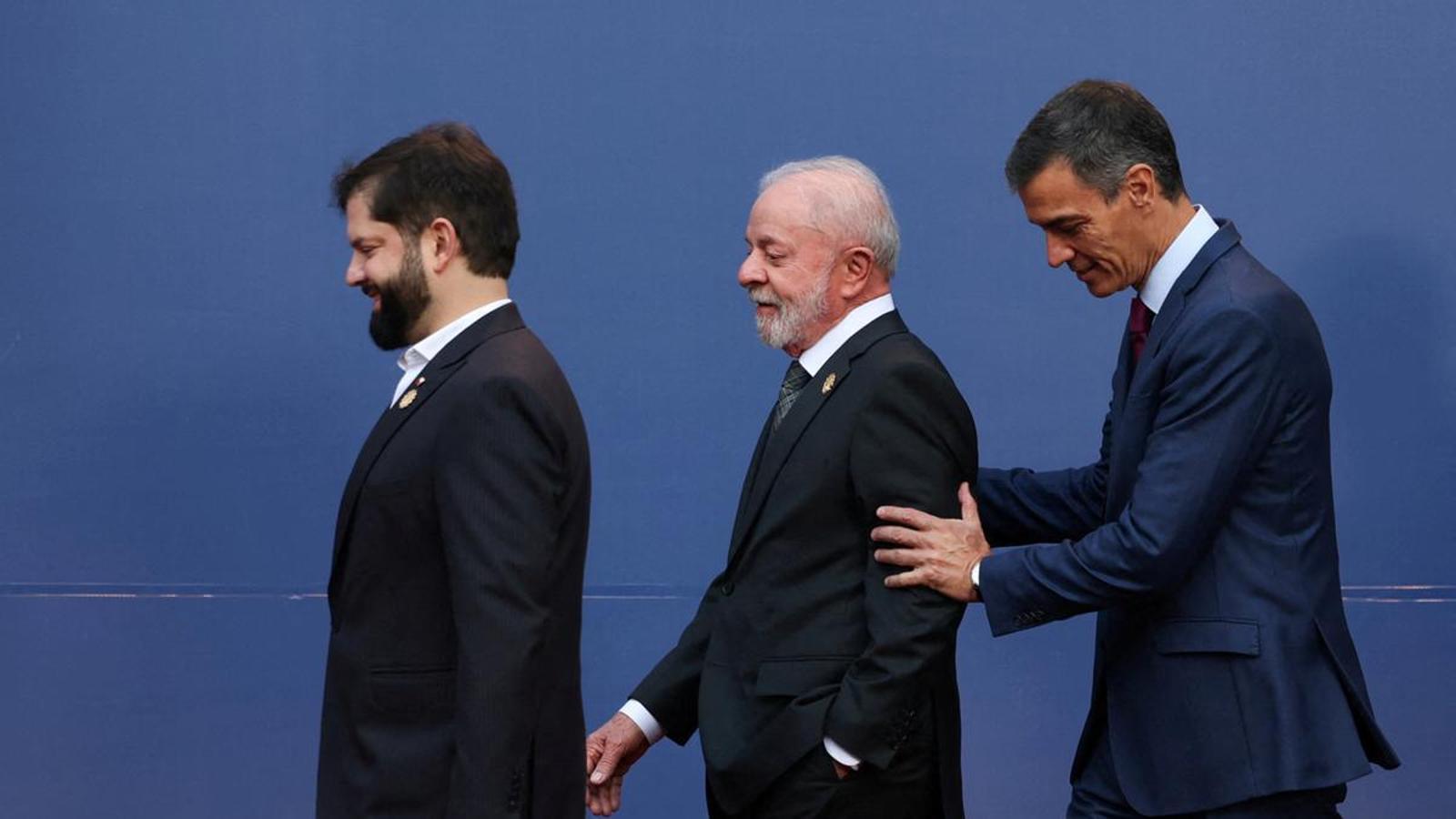Normalizing authoritarianism


1. Opportunity.They are the usual suspects, the last remaining elements of the Ibero-American left: Pedro Sánchez has joined Presidents Lula da Silva (Brazil), Gabriel Boric (Chile), Gustavo Petro (Colombia), and Yamandú Orsi (Uruguay) in protesting against the "hate international." The chosen location is an icon of bygone eras: Chile's Moneda Palace, where Salvador Allende fell during Augusto Pinochet's fascist coup d'état in September 1973—which is not absurd to recall at a time of reactionary wave like the present. It could be considered like appealing to the prehistory of accelerated times like those we've been experiencing since the turn of the century. Everything seems very far away. Certainly. But there are images that become iconic. And Allende's fate was iconic at a time when the United States was putting the brakes on any Latin American audacity.
We are, therefore, faced with a fact, somewhere between opportunism and reality, which is interesting for what it indicates more than for what it represents. And it confirms Sánchez's personality, always looking for loopholes to rise above the intense pressure, the suffocation of these weeks. And it does so just at the moment when the PP has become trapped in its obsessive strategy against the president, with the emergence of a web of corruption around Cristóbal Montoro that reveals a whole way of understanding the State and the public-private relationship. Sánchez seemed finished. He resisted the attempt to overthrow him, especially due to the stupidity of the PP—which sought to burn him out rather than seek complicity to force change—and the right has only managed to show his limits. And Sánchez, as we know, jumps at any opportunity to make people believe his path has a future. And he is fortunate that his adversaries cannot overcome their limitations.
2. Normalization.It's been clear for several months now that a significant portion of the right—neo-fascists, obviously, but also conservatives and even some liberal sectors—are normalizing Trump. How many times have we heard people say, "He's not doing so badly," "He's right about some things," "The problems he points out are pertinent," "We'll have to end up understanding," "What he's proposing isn't unreasonable," and so on? There's the natural conservative tendency of the species to adapt to what's happening, but there's also the reality that Trump is not alone, and that the economic and media powers that employ him—even if he's a bit out of control—are normalizing the situation: "It is what it is." And for the conservative world—if they don't touch the essentials—it's better for us to adapt to him, even if their incontinence is sometimes embarrassing.
It's the triumph of gold and insolence. And it makes holes: the proof is that the far right has power within reach in many European countries. The fact that Trump is where he is normalizes them. The agenda increasingly adapts to his strident rhetoric: the immigrant as the enemy, the necessary villain to elicit patriotic outrage; climate change as a fantasy, with denialism running rampant with ever-decreasing resistance; and war as the solution to conflicts. Trump has modeled the exchange of drones with Iran as a prelude to peace, while Netanyahu's killings continue unabated and everyone looks the other way. Military spending is growing exponentially everywhere, to the greater glory of its manufacturers, and with the sinister alibi of deterrence. Let us all arm ourselves to the teeth and there will be no more wars. The ideological storm is fraught with irrationality.
And while everyone is falling in line to normalize discourses that now directly question democracy, Pedro Sánchez, rather than giving up, recovers some of his signature traits: a degree of distance from what is assumed to be unquestionable. And he plays the card of defending threatened democracies. Opportunism? What surprises me is that more and more people are keeping quiet, those who strive to normalize the current state of democratic authoritarianism. And they are listening in one ear and out the other with the evidence that neo-fascism is setting the pace for Europe. And they want to make the public believe what they are supposed to. While the left is conspicuous by its absence.
